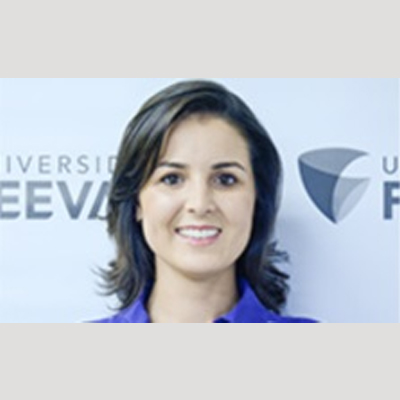Marina Venzon Antunes
Professor of Biomedicine
Feevale University, Novo Hamburgo, Brazil
This month we hear from Marina Venzon Antunes, young scientist and co-chair of the upcoming IATDMCT Congress in Foz do Iguaçu, Brazil. Marina shares about her work at the Feevale University where they are developing various assays and approaches using alternative sampling strategies, in the aim to facilitate access in a context where her lab is one of few reference centres for TDM in the country.
Can you tell us a little bit about your respective roles? What is a typical day like for you?
I work as a professor and researcher at Feevale University in Novo Hamburgo, South Brazil. On a typical day, I manage my research activities and advise undergraduate and Masters research projects. I also supervise the analytical toxicology service and teach toxicology to undergraduate students.
Is there anything that your laboratory does, that you would consider innovative?
At our laboratory, we work on the development and validation of analytical methods applied to the therapeutic drug monitoring (TDM) of several substances, with an emphasis on oncological drugs. In the past few years, we have focused on alternative sampling strategies, such as dried blood spots (DBS) and dried saliva spots (DSS), aiming to facilitate the clinical implementation of TDM in Brazil as a large developing country with limited financial resources. One of our most innovative works includes the use of DSS samples to assess the DPD metabolic rate in patients receiving fluoropyrimidine-based chemotherapy.
What technological innovations have entered into use during your career that have permitted a change, or evolution, in practice?
Being a young scientist and working in a relatively new laboratory, I consider the mass spectrometer (LC-MS/MS) to be the most significant technological innovation to which we have access. It has allowed us to develop highly sensitive methods, suitable for small sample volumes, including for DBS and DSS.
How did you become interested in your area of expertise?
I became interested in TDM and analytical toxicology during my studies in Biomedical Science, through an undergraduate research project supervised by Professor Rafael Linden. During this time I started working with liquid chromatography and other bioanalytical methods. Over the years, having the opportunity to work with oncology patients during my Masters and PhD, and participating in IATDMCT Congresses, I have become even more interested in TDM.
Is there anything that you’ve seen or heard about recently and thought “I’d like to incorporate that idea at my center”?
I would like to incorporate genotyping analysis in association with drug monitoring.
What sort of research do you have on the horizon that you think might influence clinical practice in the future?
I hope we can expand our research on TDM using alternative sampling strategies. Although challenging, this approach is especially relevant in Brazil, a large developing country with a limited number of reference centers for TDM.
What do you consider is the future for TDM and CT? What are you excited about? What are the challenges we face?
I consider the development and availability of highly sensitive and accurate microsampling mass spectrometry-based point-of-care methods, together with pharmacometric tools, will have a central role in advancing TDM and its wider application. I also recognize the importance of pharmacogenetics and believe that it will remain a crucial area of investigation, progressively introduced to clinical practice. However, there are undoubtedly many challenges to be addressed, including limited financial resources, especially in developing countries, the need for robust data and clinical validation.
The content of the IATDMCT Blog does not necessarily have the endorsement of the Association.



